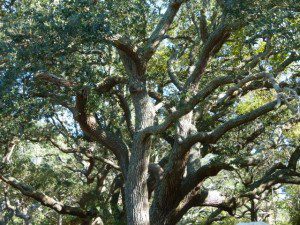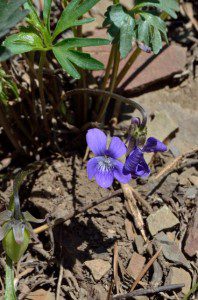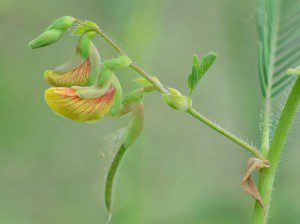Coastal Barnyard Grass
Fall is a great time of year for grass ID! Echinochloa walteri, member of the Poaceae family, is an annual herb that can reach six feet. According to the the Flora of Virginia it is frequent to common in the estuarine and maritime zones of the Virginia’s Coastal Plain. The flowers are only a few…
VNPS Annual Meeting Field Trip to False Cape
For the first time, two all-day field trips were added to the rooster of choices for the VNPS Annual Meeting in order to allow more time for travel into places not readily accessible. A trip to Cypress Bridge involved boats. A trip to False Cape State Park today required a drive by tram through a…
Botanical Excitement in Lexington’s Backyard
Well, not in Lexington, but they might as well be. A series of unexpected rock outcrops barely on the Rockbridge side of the line provides a case study in plant disjunction and unexpected botanical discovery. * * disjunct – separated geographically, especially the population of a restricted area lying outside a main range These bedrock…
Giant Natural Gas Pipelines Proposed for Virginia
On September 2nd, Dominion Resources, along with its partners Duke Energy, Piedmont Natural Gas and AGL Resources, announced its intention to move ahead and build a major 42 inch pipeline that will stretch 550 miles across three states. It will begin in Harrison County, West Virginia and end in eastern North Carolina. Approximately 450 miles…
A Tale of Shale: Virginia’s New Violet
The Virginia shale country has offered up yet another major botanical surprise. In a corner of the state already renowned for its botanical oddities, the winding path leading to this discovery illustrates the value of field work, curiosity, and research in its most literal sense. In 1936, while exploring shale barrens and woodlands in Douthat…
Unwanted and Unloved: Porcelain-berry!
This is the time of year when it becomes apparent that porcelain-berry is making a bold attempt at taking over the world. Or at least vast swathes of Virginia’s forests, especially those near urban areas. Suddenly those white flowers and multi-colored berries are appearing on what seemed yesterday to be innocent green vines…in fact, didn’t…
Seeds of a New Chapter?
Virginia’s Eastern Shore: it’s that part of the state that is separated from the rest of the Commonwealth, attached by land to Maryland and connected to the rest of Virginia only by the 17.6-mile Chesapeake Bay Bridge-Tunnel, an engineering marvel. All too often the ES is omitted from simple maps of the state, and residents…
The Hunt Is On: Meet the Treasures!
The VNPS Fundraiser for 2014 is part two of the Natural Treasure Hunt, an effort to make funds available for researching, locating, and mapping some of Virginia’s floral treasures that are in need of help if we want to keep them around. On the homepage of Virginia’s Department of Natural Heritage , (DNH), our partners in the…





